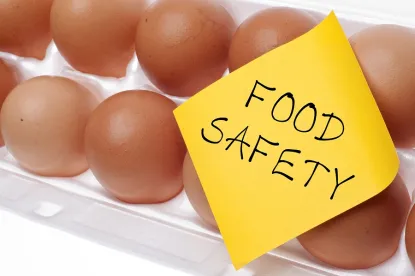-
After the mid-term election earlier this month, California made cage-free eggs a state law. With 62% of the votes, California voters overwhelmingly approved Proposition 12, also known as the Prevention of Cruelty to Farm Animals Act, which requires that all eggs sold in the state come from cage-free hens by 2022. Proposition 12 also bans the sale of pork and veal in California from farm animals raised in cages that do not meet new minimum size requirements. In other words, farmers across the country who sell eggs, veal, and pork in California will be required to comply with Proposition 12.
-
The Act builds on a measure passed in 2008, Proposition 2, which banned keeping hens, calves, and pigs in cramped cages. While that measure took effect in 2015, it lacked specific size requirements and did not apply to out-of-state farmers who sold in California. Proposition 12 outlines specific size requirements and applies to out-of-state farmers that sell eggs, veal and pork in California. Starting in 2020, calves must have at least 43 square feet (4 square meters) of usable floor space, while breeding pigs must have at least 24 square feet (2.2 square meters) of floor space by 2022. By 2020, egg-laying hens must be given 1 square foot (144 square inches) of floor space each, until 2022 when all egg-laying hens must be cage-free.
-
Both the Sierra Club and the Humane Society of the United States supported California’s Proposition 12, while groups like the Association of California Egg Farms, the California Pork Producers Association, and National Pork Producers Council opposed the measure and argued it will cause consumers to pay more for eggs, veal, and pork. Nonetheless, supporters of the measure are understandably pleased with the outcome. Sara Amundson, president of the Humane Society Legislative Fund, stated that “the passage of Proposition 12 is groundbreaking for the welfare of animals and has raised the bar at an important time in our consideration of what farm to table means in this country.”
-
The California Department of Food and Agriculture and the California Department of Public Health are responsible for the implementation of and compliance with Proposition 12. Violations of the measure are classified as misdemeanors, with fines reaching up to $1,000.
-
With the passage of Proposition 12, California is following Massachusetts, which passed the Massachusetts Minimum Size Requirements for Farm Animal Containment (known as Question 3) in November of 2016. Proposition 12 is identical to the Massachusetts law in that it bans the sale of products from pigs, calves, and hens that are not provided with adequate floor space and is to take full effect in 2022. The Humane Society of the United States also supported the Massachusetts measure.
California’s Proposition 12 Animal Welfare Measure Wins Big – Requires Cage-Free Eggs by 2022
Wednesday, November 28, 2018
Current Public Notices
Published: 15 September, 2025
Published: 15 September, 2025
Published: 9 September, 2025
Published: 9 September, 2025
Published: 8 September, 2025
Published: 4 September, 2025
Published: 28 August, 2025
Published: 25 August, 2025
Published: 22 August, 2025
Published: 20 August, 2025
Published: 20 August, 2025
Published: 18 August, 2025
Published: 11 August, 2025
Published: 8 August, 2025
Published: 26 June, 2025



 />i
/>i

